34 start with B start with B

Medicine's changing economics have already fundamentally, permanently altered the relationship between physician and patient, E. Haavi Morreim argues. Physicians must weigh a patient's interests against the legitimate, competing claims of other patients, of payers, of society as a whole, and sometimes even of the physician himself.
Focusing on actual situations in the clinical setting, Morreim explores the complex moral problems that current economic realities pose for the practicing physician. She redefines the moral obligations of both physicians and patients, traces the specific effects of these redefined obligations on clinical practice, and explores the implications for patients as individuals and for national health policy. Although the book focuses on health care in the United States, physicians everywhere are likely to face many of the same basic issues of clinical ethics, because every system of health care financing and distribution today is constrained by finite resources.

Once rarely discussed in medical circles, the relationship between spirituality and health has become an important topic in health care. This change is evidenced in courses on religion and medicine taught in most medical schools, articles in journals such as the New England Journal of Medicine, and conferences being held all over the country. Yet, much of the discussion of the role of religion and spirituality in health care keeps the critical distance of only being about spirituality. A Balm for Gilead goes further, offering a work of spirituality.
Sulmasy moves between the poetic and the speculative, addressing his subject in the tradition of great spiritual writers like Augustine and Bonaventure. He draws from philosophical and theological sources—specifically, Hebrew and Christian scripture—to illuminate how the art of healing is integrally tied to a sense of the divine and our ultimate interconnectedness. Health care professionals—and anyone else involved with the care of the sick and dying—will find this series of meditations both inspiring and instructive.
Sulmasy addresses the spiritual malaise that physicians, nurses, and other health care workers experience in their professional lives, and explores how these Christian healers can be inspired to persevere in the care of the sick. Drawing on the parable of the prodigal son, for instance, Sulmasy illustrates how some physicians have put financial gain ahead of their patients, and how genuine spirituality might change their hearts. He examines both enigmatic topics such as the relationship between sinfulness, sickness, and suffering and the spirituality of more routine topics such as preventive medicine. In one especially stirring and poignant meditation, he reflects on the spirituality of dying in the light of Christian hope.
A Balm for Gilead interweaves prayer and reflection, pointing the way to a twenty-first-century spirituality for health care professionals and their patients.

People who helped exterminate Jews during the shoah (Hebrew for "holocaust") often claimed that they only did what was expected of them. Intrigued by hearing the same response from individuals who rescued Jews, David R. Blumenthal proposes that the notion of ordinariness used to characterize Nazi evil is equally applicable to goodness. In this provocative book, Blumenthal develops a new theory of human behavior that identifies the social and psychological factors that foster both good and evil behavior.
Drawing on lessons primarily from the shoah but also from well-known obedience and altruism experiments, My Lai, and the civil rights movement, Blumenthal deftly interweaves insights from psychology, history, and social theory to create a new way of looking at human behavior. Blumenthal identifies the factors — social hierarchy, education, and childhood discipline — that shape both good and evil attitudes and actions.
Considering how our religious and educational institutions might do a better job of encouraging goodness and discouraging evil, he then makes specific recommendations for cultivating goodness in people, stressing the importance of the social context of education. He reinforces his ideas through stories, teachings, and case histories from the Jewish tradition that convey important lessons in resistance and goodness.
Appendices include the ethical code of the Israel Defense Forces, material on non-violence from the Martin Luther King, Jr., Center, a suggested syllabus for a Jewish elementary school, and a list of prosocial sources on the Web, as well as a complete bibliography.
If people can commit acts of evil without thinking, why can’t even more commit acts of kindness? Writing with power and insight, Blumenthal shows readers of all faiths how we might replace patterns of evil with empathy, justice, and caring, and through a renewed attention to moral education, perhaps prevent future shoahs.
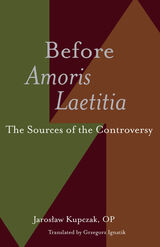
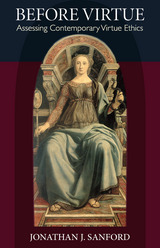

One of the most important theologians of the modern era, Karl Rahner is best known for his efforts to make Christianity credible in light of the intellectual questions of modern culture. Stephen M. Fields, SJ, now explains how Rahner developed his metaphysics as a creative synthesis of Thomism and the modern philosophical tradition. Focusing on Rahner's core concept of the Realsymbol, which posits all beings as symbolic, Fields establishes the place of the Realsymbol in philosophical theories of the symbol. He particularly concentrates on those key aspects of Rahner's metaphysics-his theories of finite realities and language—that have received insufficient attention.
By examining a wide range of Rahner's works in the context of twelve medieval, modern, and contemporary thinkers, Fields locates the origins of this seminal thinker's metaphysics to an extent never before attempted. He notes the correlations that exist between the Realsymbol and such work as Aquinas's theory of the sacraments, Goethe's and Hegel's dialectics, Moehler's view of religious language, and Heidegger's aesthetics.
Through this analysis, Fields reveals the structural core of Rahner's metaphysics and shows how art, language, knowledge, religious truth, and reality in general are all symbolic. Being as Symbol opens new perspectives on this important thinker and positions him in the broader spectrum of philosophical thought.
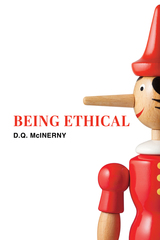
The two biggest judgments one will make during life pertain to knowing what is good, what is bad, and the difference between the two. This bleeds into a study of morality and ethics when it pertains to concrete acts, but in reality all aspects of our lives bear on these judgments. “Being ethical is not simply a state of mind, it is a state of being, a way of living one’s life that reflects the fundamental principles of ethics [...] [it is one] who lives in a certain way.” Nevertheless, the subject of this book focuses on ethics––namely, the goodness or badness of human acts. McInerny’s great reason for writing this work is to teach the reader that he or she cannot properly tackle ethical questions (even if they are not identified as such) if one is not himself or herself actually ethical (living virtuously).
Writing very much as a teacher of teachers, McInerny relies on the foundations of Aristotle and Thomas Aquinas, as well as his late brother, Ralph McInerny, to reiterate the principles of ethics that inform both thought and act. To speak of ethics, then, is to admit a commitment to virtue and how the theoretical distinction of good and bad is necessarily practical. Acting well will lead to thinking better, but McInerny notes that culture has lost sight of the former and thereby the coherency to address ethical questions. Being Ethical aims to correct this disconnect in forty-eight cogent lessons.
Being Ethical is fundamentally intended to serve as a sequel to D. Q. McInerny’s Being Logical (Random House, 2004), which has remained in print and has been translated into six languages. Its style lends itself to being used as a textbook in liberal studies. More generally, it is a refreshing presentation of this topic and timely and timeless exhortation to readers of the necessity of a love of virtue for ethical thought. For friends and students of Aristotle, Thomas Aquinas and Ralph McInerny, this book bears a style and manner that is both familiar and much loved.

Research with human subjects has long been controversial because of the conflicts that often arise between promoting scientific knowledge and protecting the rights and welfare of subjects. Twenty-five years ago the National Commission for the Protection of Human Subjects of Biomedical and Behavioral Research addressed these conflicts. The result was the Belmont Report: Ethical Principles and Guidance for Research Involving Human Subjects, a report that identified foundational principles for ethical research with human subjects: respect for persons, beneficence, and justice.
Since the publication of Belmont, these three principles have greatly influenced discussions of research with human subjects. While they are often regarded as the single-most influential set of guidelines for biomedical research and practice in the United States (and other parts of the world), not everyone agrees that they provide adequate guidance. Belmont Revisited brings together a stellar group of scholars in bioethics to revisit the findings of that original report. Their responses constitute a broad overview of the development of the Belmont Report and the extent of its influence, especially on governmental commissions, as well as an assessment of its virtues and shortcomings.
Belmont Revisited looks back to reexamine the creation and influence of the Belmont Report, and also looks forward to the future of research—with a strong call to rethink how institutions and investigators can conduct research more ethically.
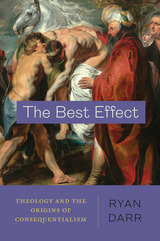
Consequentialism—the notion that we can judge an action by its effects alone—has been among the most influential approaches to ethics and public policy in the Anglophone world for more than two centuries. In The Best Effect, Ryan Darr argues that consequentialist ethics is not as secular or as rational as it is often assumed to be. Instead, Darr describes the emergence of consequentialism in the seventeenth century as a theological and cosmological vision and traces its intellectual development and eventual secularization across several centuries. The Best Effect reveals how contemporary consequentialism continues to bear traces of its history and proposes in its place a more expansive vision for teleological ethics.

Optimists believe this is the best of all possible worlds. And pessimists fear that might really be the case. But what is the best of all possible worlds? How do we define it? Is it the world that operates the most efficiently? Or the one in which most people are comfortable and content? Questions such as these have preoccupied philosophers and theologians for ages, but there was a time, during the seventeenth and eighteenth centuries, when scientists and mathematicians felt they could provide the answer.
This book is their story. Ivar Ekeland here takes the reader on a journey through scientific attempts to envision the best of all possible worlds. He begins with the French physicist Maupertuis, whose least action principle asserted that everything in nature occurs in the way that requires the least possible action. This idea, Ekeland shows, was a pivotal breakthrough in mathematics, because it was the first expression of the concept of optimization, or the creation of systems that are the most efficient or functional. Although the least action principle was later elaborated on and overshadowed by the theories of Leonhard Euler and Gottfried Leibniz, the concept of optimization that emerged from it is an important one that touches virtually every scientific discipline today.
Tracing the profound impact of optimization and the unexpected ways in which it has influenced the study of mathematics, biology, economics, and even politics, Ekeland reveals throughout how the idea of optimization has driven some of our greatest intellectual breakthroughs. The result is a dazzling display of erudition—one that will be essential reading for popular-science buffs and historians of science alike.
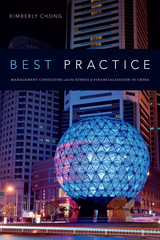
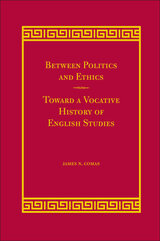
For nearly twenty-five years, English studies has been focused on two terms: politics and ethics. However, the institutional emergence, development, and relationship of these two concepts have yet to be examined. Between Politics and Ethics: Toward a Vocative History of English Studies traces the development of politics and ethics in contemporary English studies, questions the current political orientation of the discipline, and proposes a rethinking of the history of English studies based on a “vocative” dimension of writing—the idea that writers form a virtual community by “calling to” and listening to other writers.
In a series of interrelated discussions, James Comas examines the historical trends leading to recent confusion regarding ethics and its relation to the politics of English studies. Through close, rhetorical readings of texts by Judith Butler, Stephen Greenblatt, Edward Said, and others, Comas argues that this confusion is largely the result of a “political turn” that resists theorizing itself. In addition, he argues that work on ethics by Wayne Booth, Geoffrey Harpham, and J. Hillis Miller reflects an uneasy dialectic between the ethics and politics of reading and writing. In response to this discord, Comas turns to the theories of Emmanuel Levinas and Maurice Blanchot, as well as to the examples of Georges Bataille and Kenneth Burke, and proposes a vocative approach to assessing English studies and its history. In doing so, this volume offers a thoughtful reassessment of English studies that affects our understanding of the rhetoric of disciplinary histories.
In Beyond a Western Bioethics, physicians Angeles Tan Alora and Josephine M. Lumitao join eight other contributors to provide a comprehensive exploration of bioethical issues outside of the dominant American and western European model. Using the Philippines as a case study, they address how a developing country's economy, religion, and culture affect the bioethical landscape for doctors, patients, families, and the society as a whole.
American principles of medical ethics assume the primacy of individual autonomy, the importance of truth-telling, and secular standards of justice and morality. In the Philippines, these standards are often at odds with a culture in which family relationships take precedence over individualism, and ideas of community, friendship, and religion can deeply influence personal behavior. Pervasive poverty further complicates the equation. Contributors move from a general discussion of the moral vision informing health care decisions in the Philippines to an exploration of a wide range of specific cases: family planning, care of the elderly, organ transplants, death and dying, medical research, AIDS care, doctor-patient relationships, informed consent, and the allocation of scarce health-care resources.
Written for both students and professionals, the book provides a much-needed perspective on how medical ethics are practiced in a developing nation, and it successfully challenges the wisdom of global bioethical standards that do not account for local cultural and economic differences.

A breakthrough in the theology of parenthood, integrating Catholic social thought and social scientific studies of child well-being in order to offer a more diverse and inclusive interpretation
The Catholic Church has a long and diverse history of tolerating various child-rearing arrangements. The dominant Catholic framework for conceptualizing parenthood, however, is highly influenced by concerns over sexual ethics and gender norms. While sexual and reproductive ethics are important, the present consensus that theological consideration of parenthood necessarily hinges on these matters diverts attention from actual parenting practices in their social and cultural contexts. In reality, kinship and caregiving are often negotiated in complex ways.
In Beyond Biology, Jacob M. Kohlhaas uses a historical and interdisciplinary theological method that engages both analytically and appreciatively with tradition to sketch a broader Catholic anthropology of parenthood. Kohlhaas’s identification of interpretive options within the Catholic tradition creates room for meaningful, intellectually convincing, and theologically rich responses to challenges facing Catholic parents and families today.
By marshaling the diversity of the Christian tradition and exploring contemporary research in the social sciences and humanities, Kohlhaas frames a theological conversation on parenthood as parenthood—considering the needs and well-being of children as well as the potentials and capabilities of adult caregivers. In his discussion, Kohlhaas considers adoption and nonbiological parenthood, fathers as primary caregivers and nurturers, caregiving by siblings and grandparents, and communal parenting and coparenting beyond the spousal pair. In Kohlhaas’s view, conceptions of parenthood should be guided by the meaning of Christian kinship rooted in baptism as well as concern for the actual caregiving capacities of adults and the needs of children.
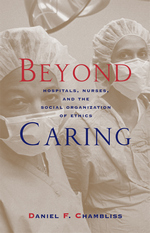
Based on more than ten years' field research, Beyond Caring is filled with eyewitness accounts and personal stories demonstrating how nurses turn the awesome into the routine. It shows how patients, many weak and helpless, too often become objects of the bureaucratic machinery of the health care system and how ethics decisions, once the dilemmas of troubled individuals, become the setting for political turf battles between occupational interest groups. The result is a compelling combination of realism and a powerful theoretical argument about moral life in large organizations.

Philosophy, economics, and decision theory have long been dominated by the idea that rational choice consists of seeking or achieving one’s own greatest good. Beyond Optimizing argues that our ordinary understanding of practical reason is more complex than this, and also that optimizing/maximizing views are inadequately supported by the considerations typically offered in their favor.
Michael Slote challenges the long-dominant conception of individual rationality, which has to a large extent shaped the very way we think about the essential problems and nature of rationality, morality, and the relations between them. He contests the accepted view by appealing to a set of real-life examples, claiming that our intuitive reaction to these examples illustrates a significant and prevalent, if not always dominant, way of thinking. Slote argues that common sense recognizes that one can reach a point where “enough is enough,” be satisfied with what one has, and, hence, rationally decline an optimizing alternative. He suggests that, in the light of common sense, optimizing behavior is often irrational. Thus, Slote is not merely describing an alternative mode of rationality; he is offering a rival theory. And the numerous parallels he points out between this common-sense theory of rationality and common-sense morality are then shown to have important implications for the long-standing disagreement between commonsense morality and utilitarian consequentialism.
Beyond Optimizing is notable for its use of a much richer vocabulary of criticism than optimizing/maximizing models ever call upon. And it further argues that recent empirical investigations of the development of altruism and moral motivation need to be followed up by psychological studies of how moderation, and individual rationality more generally, take shape within developing individuals.
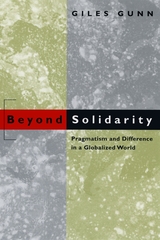
He finds the terms for answering these questions in a more inclusive, cosmopolitan pragmatism—one willing to explore fundamental values without recourse to absolutist arguments. Drawing on the work of William and Henry James, John Dewey, Primo Levi, Richard Rorty, and many others, as well as postcolonial writing, Jewish literature of the Holocaust, and the cultural and religious experience of African Americans in slavery, Gunn points pragmatism in a transnational direction and shows how it can better account for the consequences of diversity. Beyond Solidarity, then, is a study of the difference that difference makes in a globalized world.

Bioethics and the Human Goods offers students and general readers a brief introduction to bioethics from a “natural law” philosophical perspective. This perspective, which traces its origins to classical antiquity, has profoundly shaped Western ethics and law and is enjoying an exciting renaissance. While compatible with much in the ethical thought of the great religions, it is grounded in reason, not religion. In contrast to the currently dominant bioethical theories of utilitarianism and principlism, the natural law approach offers an understanding of human flourishing grounded in basic human goods, including life, health, friendship, and knowledge, and in the wrongness of intentionally turning against, or neglecting, these goods.
The book is divided into two sections: Foundations and Issues. Foundations sketches a natural law understanding of the important ethical principles of autonomy, non-maleficence, beneficence, and justice and explores different understandings of “personhood” and whether human embryos are persons. Issues applies a natural law perspective to some of the most controversial debates in contemporary bioethics at the beginning and end of life: research on human embryos, abortion, infanticide, euthanasia, the withdrawal of tube-feeding from patients in a “persistent vegetative state,” and the definition of death. The text is completed by appendices featuring personal statements by Alfonso Gómez-Lobo on the status of the human embryo and on the definition and determination of death.
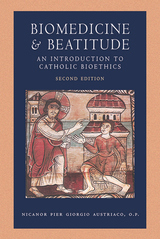
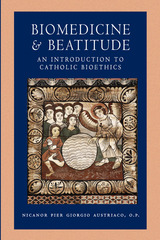

Biosecurity Dilemmas examines conflicting values and interests in the practice of “biosecurity,” the safeguarding of populations against infectious diseases through security policies. Biosecurity encompasses both the natural occurrence of deadly disease outbreaks and the use of biological weapons. Christian Enemark focuses on six dreaded diseases that governments and international organizations give high priority for research, regulation, surveillance, and rapid response: pandemic influenza, drug-resistant tuberculosis, smallpox, Ebola, plague, and anthrax. The book is organized around four ethical dilemmas that arise when fear causes these diseases to be framed in terms of national or international security: protect or proliferate, secure or stifle, remedy or overkill, and attention or neglect. For instance, will prioritizing research into defending against a rare event such as a bioterrorist attack divert funds away from research into commonly occurring diseases? Or will securitizing a particular disease actually stifle research progress owing to security classification measures? Enemark provides a comprehensive analysis of the ethics of securitizing disease and explores ideas and policy recommendations about biological arms control, global health security, and public health ethics.

Some of humankind's greatest tools have been forged in the research laboratory. Who could argue that medical advances like antibiotics, blood transfusions, and pacemakers have not improved the quality of people's lives? But with each new technological breakthrough there comes an array of consequences, at once predicted and unpredictable, beneficial and hazardous.
Outcry over recent developments in the reproductive and genetic sciences has revealed deep fissures in society's perception of biotechnical progress. Many are concerned that reckless technological development, driven by consumerist impulses and greedy entrepreneurialism, has the potential to radically shift the human condition—and not for the greater good. Biotechnology and the Human Good builds a case for a stewardship deeply rooted in Judeo-Christian theism to responsibly interpret and assess new technologies in a way that answers this concern.
The authors jointly recognize humans not as autonomous beings but as ones accountable to each other, to the world they live in, and to God. They argue that to question and critique how fields like cybernetics, nanotechnology, and genetics might affect our future is not anti-science, anti-industry, or anti-progress, but rather a way to promote human flourishing, common sense, and good stewardship.
A synthetic work drawing on the thought of a physician, ethicists, and a theologian, Biotechnology and the Human Good reminds us that although technology is a powerful and often awe-inspiring tool, it is what lies in the heart and soul of who wields this tool that truly makes the difference in our world.
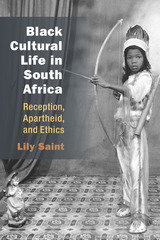
This study provocatively posits that states of oppression, including colonial and postcolonial rule, can elicit ethical responses to imaginative identification through encounters with popular culture, and it asks whether and how they carry over into ethical action. Its consideration of how globalized popular culture “travels” not just in material form, but also through the circuits of the imaginary, opens a new window for exploring the ethical and liberatory stakes of popular culture. Each chapter focuses on a separate genre, yet the overall interdisciplinary approach to the study of genre and argument for an expansion of ethical theory that draws on texts beyond the Western canon speak to growing concerns about studying genres and disciplines in isolation. Freed from oversimplified treatments of popular forms—common to cultural studies and ethical theory alike—this book demonstrates that people can do things with mass culture that reinvigorate ethical life.
Lily Saint’s new volume will interest Africanists across the humanities and the social sciences, and scholars of Anglophone literary, globalization, and cultural studies; race; ethical theories and philosophies; film studies; book history and material cultures; and the burgeoning field of comics and graphic novels.
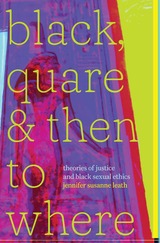

A Black-Jewish dialogue lifts a veil on these groups’ unspoken history, shedding light on the challenges and promises facing American democracy from its inception to the present
In this uniquely structured conversational work, two scholars—one of African American politics and religion, and one of contemporary American Jewish culture—explore a mystery: Why aren't Blacks and Jews presently united in their efforts to combat white supremacy? As alt-right rhetoric becomes increasingly normalized in public life, the time seems right for these one-time allies to rekindle the fires of the civil rights movement.
Blacks and Jews in America investigates why these two groups do not presently see each other as sharing a common enemy, let alone a political alliance. Authors Terrence L. Johnson and Jacques Berlinerblau consider a number of angles, including the disintegration of the “Grand Alliance” between Blacks and Jews during the civil rights era, the perspective of Black and Jewish millennials, the debate over Louis Farrakhan and the Nation of Islam, and the Israel-Palestine conflict.
Ultimately, this book shows how the deep roots of the Black-Jewish relationship began long before the mid-twentieth century, changing a narrative dominated by the Grand Alliance and its subsequent fracturing. By engaging this history from our country’s origins to its present moment, this dialogue models the honest and searching conversation needed for Blacks and Jews to forge a new understanding.
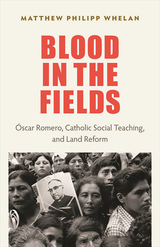

In Body Parts, E. Richard Gold examines whether the body and materials derived from it—such as human organs and DNA—should be thought of as market commodities and subject to property law. Analyzing a series of court decisions concerning property rights, Gold explores whether the language and assumptions of property law can help society determine who has rights to human biological materials.
Gold observes that the commercial opportunities unleashed by advances in biotechnology present a challenge to the ways that society has traditionally valued the human body and human health. In a balanced discussion of both commercial and individual perspectives, Gold asserts the need to understand human biological materials within the context of human values, rather than economic interests.
This perceptive book will be welcomed by scholars and other professionals engaged in questions regarding bioethics, applied ethics, the philosophy of value, and property and intellectual property rights. Given the international aspects of both intellectual property law and biotechnology, this book will be of interest throughout the world and especially valuable in common-law (most English-speaking) countries.
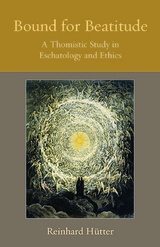

Neural grafting, virtual reality, gene therapy, psychotropic drugs As startling new treatments emerge for disorders of the brain, new concerns are arising along with them. In the first book to examine the implications of the full range of revolutionary interventions now possible in the human brain, Robert H. Blank warns that while these new techniques may promise medical wonders, they also raise profound political questions.
Our rapidly unfolding knowledge about the brain and the accompanying applications have three main policy dimensions: funding research initiatives, controlling individual use, and assessing social consequences. But underlying these aspects, Blank argues, are more disturbing issues that pose fundamental challenges to our conceptions of equality, autonomy, freedom, responsibility, and human nature itself.
Brain Policy makes the key facts from the technical literature readily accessible to social scientists and general readers and points out the implications for our society. Blank first explains the structure and function of the nervous system and current theories of brain operation; he then assesses the uses and potential abuses of various intervention techniques. He identifies the public policy issues raised by discoveries in the neurosciences and calls for intensified scrutiny of the advantages and disadvantages of new technologies.
Warning that the risks and dangers of the dramatic developments in neuroscience are potentially large, Blank offers a means of understanding these scientific advances and the philosophical and political issues they entail. This book will be of interest to social scientists, policy analysts, policy makers, bioethicists, scientists who want to see the bigger picture, and the informed reader with an interest in the implications of neuroscience for themselves and society.
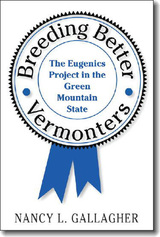

John Courtney Murray, SJ (1904-1967), is most renowned for his ethical writings, which distinguish between the secular and the sacred, and for his defense of civil religious freedom based on natural law philosophy. His later theological writings, however, in which he sought to reintegrate the temporal and the spiritual, civil society and the church, philosophy and theology, have been largely ignored. In this new collection of essays—previously scattered among various periodicals over the course of thirty years—J. Leon Hooper, S.J., presents a selection of Murray's theological writings that not only outlines and highlights the integrity of Murray's moves towards a public theological discourse but also contributes to the ongoing post-conciliar task of integrating the secular and the sacred, thereby invigorating American public conversation today.
In his editorial introductions, Hooper furthers Murray scholarship by identifying two distinct links between Murray's well known non-theological writings and the explicitly theological work that also spans his public life. Common to both areas are Murray's deepening appreciation of the historicity of all human knowing and the cognitional operations that the human person brings to both sacred and profane living.
By making available Murray's explicitly theological and Christian humanism writings, this collection further enriches American ethical, theological and philosophical debate.
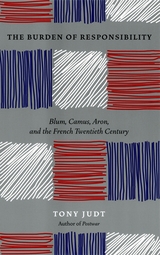
Through the prism of the lives of Leon Blum, Albert Camus, and Raymond Aron, Judt examines pivotal issues in the history of contemporary French society—antisemitism and the dilemma of Jewish identity, political and moral idealism in public life, the Marxist moment in French thought, the traumas of decolonization, the disaffection of the intelligentsia, and the insidious quarrels rending Right and Left. Judt focuses particularly on Blum's leadership of the Popular Front and his stern defiance of the Vichy governments, on Camus's part in the Resistance and Algerian War, and on Aron's cultural commentary and opposition to the facile acceptance by many French intellectuals of communism's utopian promise. Severely maligned by powerful critics and rivals, each of these exemplary figures stood fast in their principles and eventually won some measure of personal and public redemption.
Judt constructs a compelling portrait of modern French intellectual life and politics. He challenges the conventional account of the role of intellectuals precisely because they mattered in France, because they could shape public opinion and influence policy. In Blum, Camus, and Aron, Judt finds three very different men who did not simply play the role, but evinced a courage and a responsibility in public life that far outshone their contemporaries.
"An eloquent and instructive study of intellectual courage in the face of what the author persuasively describes as intellectual irresponsibility."—Richard Bernstein, New York Times

A comprehensive overview of the contribution of Catholic social thought to business ethics
Can a religion founded on loving one’s neighbor give moral approval to profit-seeking business firms in a global economy? What should characterize the relationship between faith and economic life? What can businesses, employees, and executives do to contribute to the common good and to make their practices and society more ethical?
Business Ethics and Catholic Social Thought provides a new and wide-ranging account of these two ostensibly divergent fields. Focusing on the agency of the business person and the interests of firms, this volume outlines fundamental issues confronting moral leaders and corporations committed to responsible business practices.
The book leads with interviews of three Catholic CEOs and the intellectual history of business ethics in Christianity before examining fundamental moral concerns regarding business: its purpose, autonomy, practical wisdom, and the technocratic paradigm. Contributing authors also consider management science, the motivations of business leaders, the role of luck in personal success, the traditional moral justifications for business, and more. These contributions bring new depth to the application of Catholic social thought to business ethics during a time when economic crisis demands a reevaluation of business and its contribution to society.
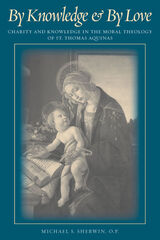
READERS
Browse our collection.
PUBLISHERS
See BiblioVault's publisher services.
STUDENT SERVICES
Files for college accessibility offices.
UChicago Accessibility Resources
home | accessibility | search | about | contact us
BiblioVault ® 2001 - 2024
The University of Chicago Press









